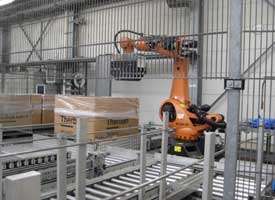 Arlanxeo, one of the world’s largest synthetic rubber producers and a wholly owned subsidiary of Saudi Aramco, says it is debottlenecking its production processes at its Hydrogenated Nitrile Butadiene Rubber (HNBR) plants in Orange, US, and Leverkusen, Germany.
Arlanxeo, one of the world’s largest synthetic rubber producers and a wholly owned subsidiary of Saudi Aramco, says it is debottlenecking its production processes at its Hydrogenated Nitrile Butadiene Rubber (HNBR) plants in Orange, US, and Leverkusen, Germany.
All debottlenecking activities are expected to be completed by the end of 2023 and will add close to 1,000 tonnes of additional capacity.
Arlanxeo produces and markets HNBR grades under the Therban brand, which is widely used in the automotive systems, new mobility, oil exploration, mechanical engineering, and aerospace sectors.
The Therban plants in Orange and Leverkusen will continue to prioritise safe and efficient production while optimising operations, adds Arlanxeo.
In June this year, Arlanxeo had announced the closure of its facility in Zwijndrecht, Belgium, producing 150 kilotonnes/year of butyl rubber. The company management had stated that the main reasoning behind the closure is the competition that the facility has had to face for a long time. Despite additional investments and other support measures, the facility remains unable due to oversupply in the market and high production costs, it had stated. Production will be taken over by facilities of Arlanxeo in Canada and Singapore.
Earlier, Arlanxeo had announced plans to build a rubber production plant in Jubail, Saudi Arabia. The 140,000 tonnes/year plant, which will be part of the US$11 billion Amiral complex planned by Saudi Aramco and Total Energies, will produce two elastomers: ultra-high cis polybutadiene (NdBR) and lithium butadiene rubber (LiBR). Arlanxeo expects construction to start in 2024 and commercial operation due in 2027.
NdBR is predominately used in high performance tyres, particularly in the tread area, due to its proven ability to improve fuel economy, influence grip and increase tire durability.
LiBR is mainly used for plastic modification applications to improve the impact resistance of products such as those used in the food packaging and household appliances industry.
